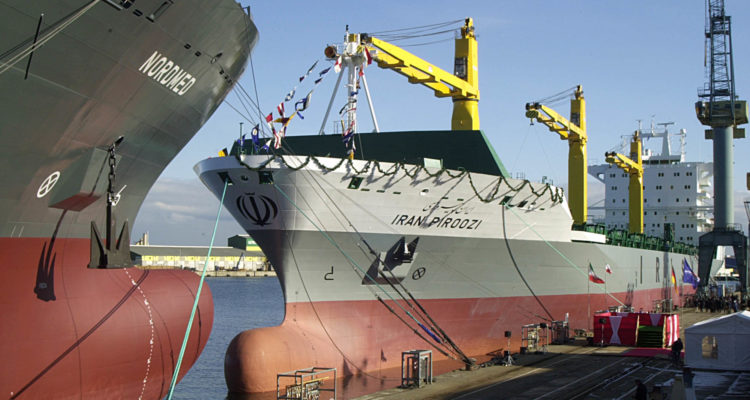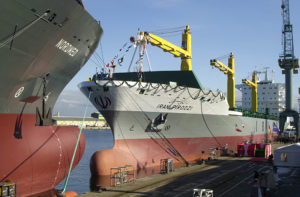He called the attack “highly accurate” and said, “There was total disarray.”
By Josh Plank, World Israel News
Israel is responsible for a May 9 cyberattack on Iran’s Shahid Rajaee shipping port, creating massive backups on waterways and roads, The Washington Post reports.
The Post cited unnamed U.S. and foreign government officials who said the attack appears to have originated with Israel. The Post was also shown satellite photographs from May 9 depicting miles-long traffic jams on highways leading to the port, and another photograph showing dozens of container ships still waiting to be unloaded on May 12.
On May 10, Mohammad Rastad, managing director of Iran’s Ports and Maritime Organization (PMO), told Iranian Labour News Agency that the cyberattack failed to penetrate the PMO’s systems and was only able to infiltrate and damage a number of private operating systems at the ports.
However, a foreign security official, who spoke on the condition of anonymity, said that the damage to the port was more serious than the Iranian accounts suggest.
He called the attack “highly accurate” and said, “There was total disarray.”
The Shahid Rajaee port facility, located in the city of Bandar Abbas on the Strait of Hormuz, is Iran’s “largest and best-equipped container port,” according to the Tehran Times. It is said to account for 85 percent of the total loading and unloading at Iranian ports.
Officials believe the cyberattack may have been in retaliation for an Iranian cyberattack on Israel’s water supply infrastructure in late April.
Israeli officials viewed Iran’s attack on civilian water facilities as crossing a red line, and the security cabinet held a meeting on May 7 to discuss how Israel should respond to the attack.
“This was a very unordinary cyberattack against civilian water facilities which is against every ethic and every code even in times of war,” a senior official told Barak Ravid of Channel 13 news. “We didn’t expect this even from the Iranians. It is just not done.”






